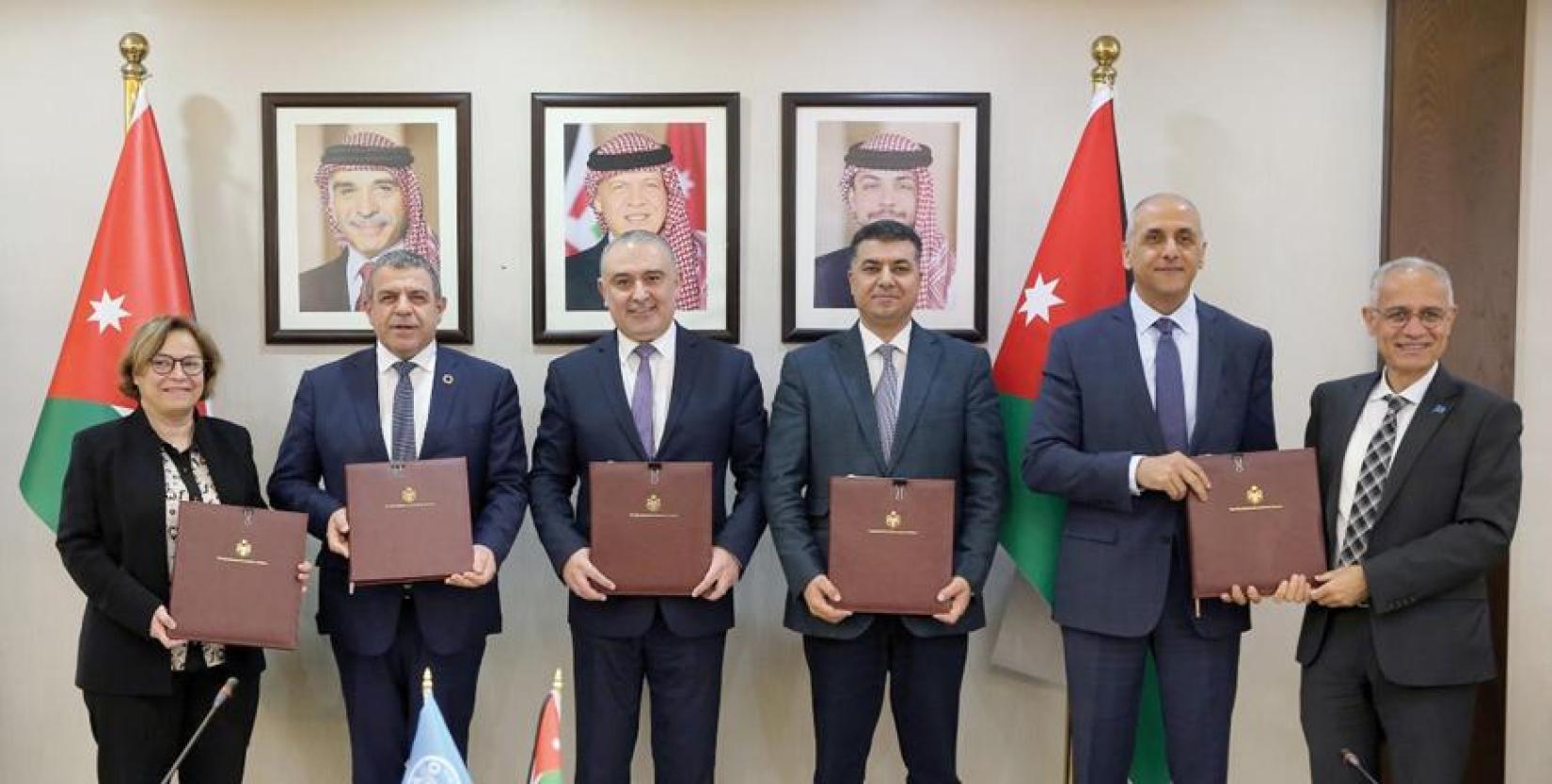FAO, MOPIC, MoWI, MoA and MoEn sign an agreement to enhance climate change adaptation in Jordan
14 April 2022

The Food and Agriculture Organization (FAO) Representative in Jordan, Eng. Nabil Assaf, H.E Minister of Planning and International Cooperation Mr. Nasser Shraideh, H.E Minister of water and Irrigation Eng. Mohammad Al Najjar, H.E Minister of Agriculture Eng. Khaled Hnaifat and H.E Minister of Environment Dr. Muawieh Radaideh signed today an agreement to enhance climate change adaptation in Jordan through “Building resilience to cope with climate change in Jordan through improving water use efficiency in the agriculture sector (BRCCJ)” project, funded by the Green Climate Fund (GCF) to build resilience to cope with climate change in Jordan through improved water use efficiency in the agriculture sector.
During the signing ceremony, Shraideh expressed appreciation for FAO for securing a grant, amounting to $25 million, from the Green Climate Fund for this project.
The project will also be co-financed by the government represented by the ministries of Environment, Agriculture and Water, FAO and the United Nations Development Programme (UNDP), at a value of $8.25 million.
The $33.25 million project aims to enhance infrastructure to maximize the optimal use of water and rationalize its consumption, spread awareness related to dealing with water scarcity, and enable the private sector to market and sell technologies, which serve water managing, saving and harvesting.
The project will be implemented in four governorates in the Dead Sea Basin: Madaba, Karak, Tafileh and Maan.
Hneifat highlighted the significance of the project and the importance of the grant provided to it to contribute to addressing the challenges of poverty, unemployment and the development of the governorates.
Radaideh noted that the project will be implemented “in line with Jordan’s Climate Change Policy (2013-2020) and National Adaptation Plan (2020) objectives”.
He added that the project will “benefit 212,416 people, 47 per cent of whom are women, as well as reducing groundwater withdrawal by 3 to 3.5 per cent and contributing up to 4.5 per cent to achieving water management objectives defined in the National Water Strategy”.
Assaf highlighted the scarcity of water resources as one of Jordan's main challenges and a limiting factor for economic development, adding, “climate change threatens the livelihoods of thousands of people who depend on agriculture for their well-being”.
UN Resident Coordinator Ghulam M. Isaczai and UNDP Resident Representative Randa Aboul Hosn referred to the distinguished relationship of UN agencies with Jordan and their readiness to continue working with the Kingdom.


